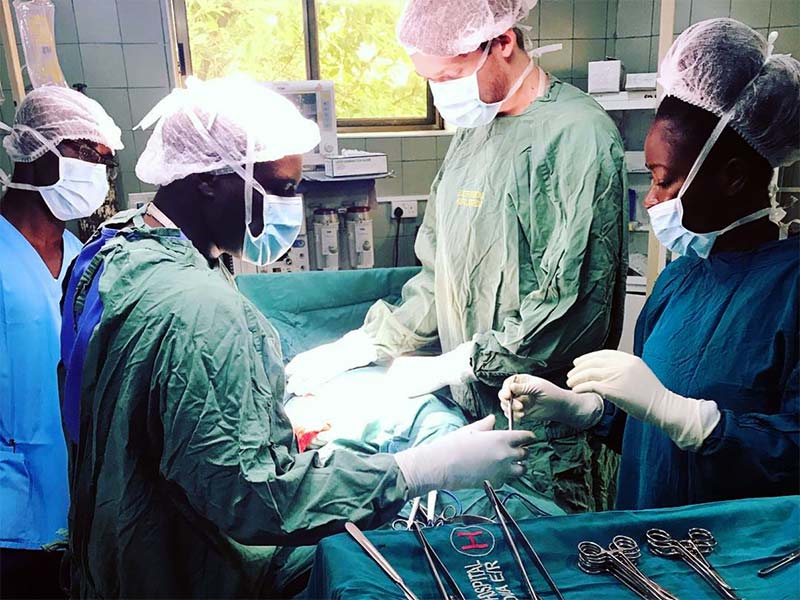
1. Set goals beforehand.
One of the first questions you should ask yourself before volunteering abroad is what are your goals and expectations? Are you looking to gain experience in a particular field like healthcare or teaching? Do you want to learn more about a particular culture? Clarifying why you want to volunteer and then choosing an organization that aligns with your goals will make it easier to have a satisfying and memorable trip.
2. Do something you’re passionate about.
When choosing a project to work on, make sure it’s something you care about and you’ll be excited to do day after day. If you’re into sports and fitness, then maybe you should volunteer to teach sports education in Thailand rather than teaching English in a classroom everyday. Or if you love working with animals, why not volunteer in turtle conservation?
There’s no point in paying money and flying halfway across the world to do something you’re not passionate about. Not only will it suck for you, but everyone else will be able to tell.
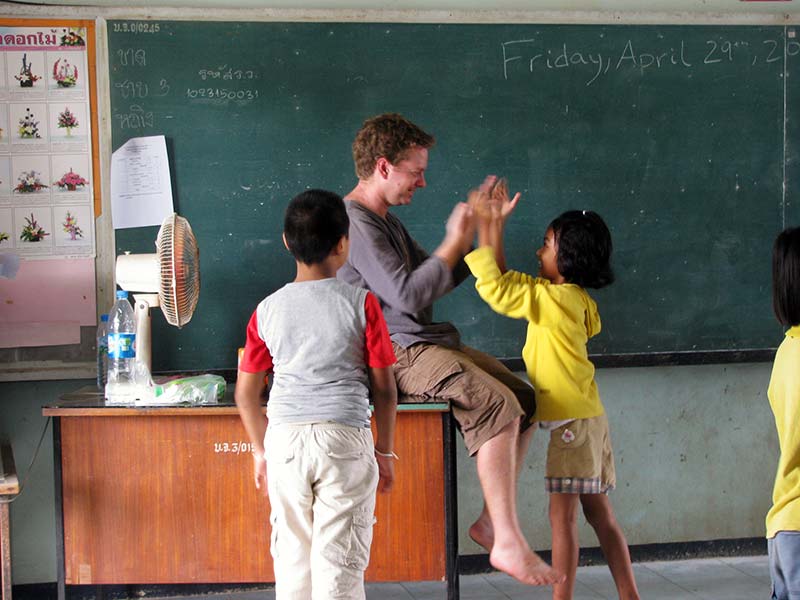
3. Be enthusiastic.
The first week of volunteering will be fun and exciting as you adjust to your new surroundings. But what about week 3 or 4 when you’re starting to get settled and things feel much more routine? Make sure to keep showing up with the same amount of energy and enthusiasm that you had the first day.
Volunteers who have a positive attitude and approach each new task with a smile and a can do attitude are the ones people enjoy being around and remember the most.
4. Stay flexible.
Plans can change often and things may not go as expected, especially when you’re working in a different culture where the values and ways of doing things are different than you’re used to at home. It might take a little while to get used to things constantly starting late if you’re volunteering at an orphanage in Ghana, for example. Or you may wonder why everyone else seems surprisingly calm when your bus breaks down on your way to your project in Thailand.
While this can be frustrating, it’s important to go with the flow when these things happen. Remember you’re there to help above all.
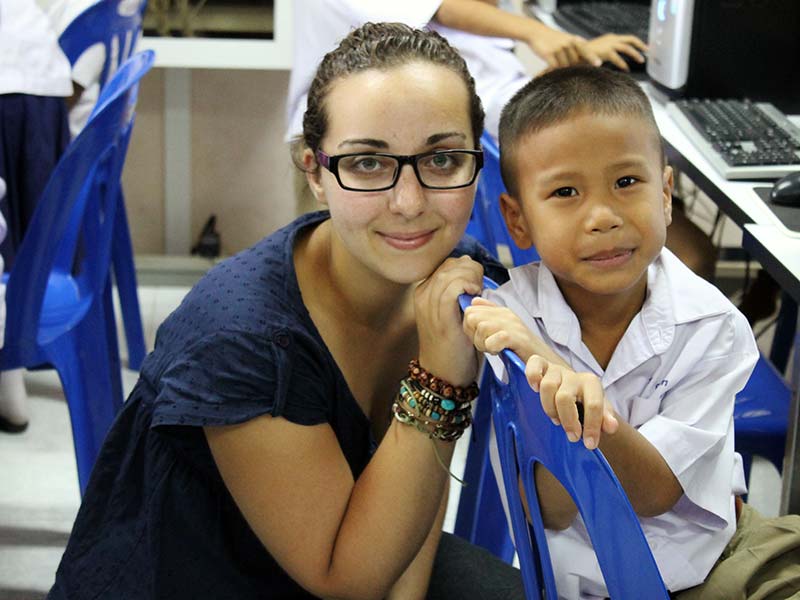
5. Look for opportunities to add value.
Sometimes local staff at the projects where you’re volunteering may be hesitant to give you too much work. Maybe they’ve had a bad experience with a volunteer or maybe they just want to overburden you. Whatever the reason, it’s totally fine to be proactive and look for opportunities to do a bit more.
Look for processes that can be improved and ask nicely if it’s something you could work on. Teachers are often overextended in poor schools for example, so your help will definitely be appreciated! Just be open to doing things that you may technically be overqualified for. Good volunteers pitch in wherever they’re needed.
6. Make sure your expectations are realistic.
Volunteers always show up excited to make a difference, and you should be! But you should also know that volunteering for a couple weeks or even months won’t magically solve the problems that international aid organizations have been working on for decades. That said, it’s still possible to make a difference in small ways.
But often the most important impact of short-term volunteering are the opportunity to learn and grow and the cultural exchange between you and the local community.
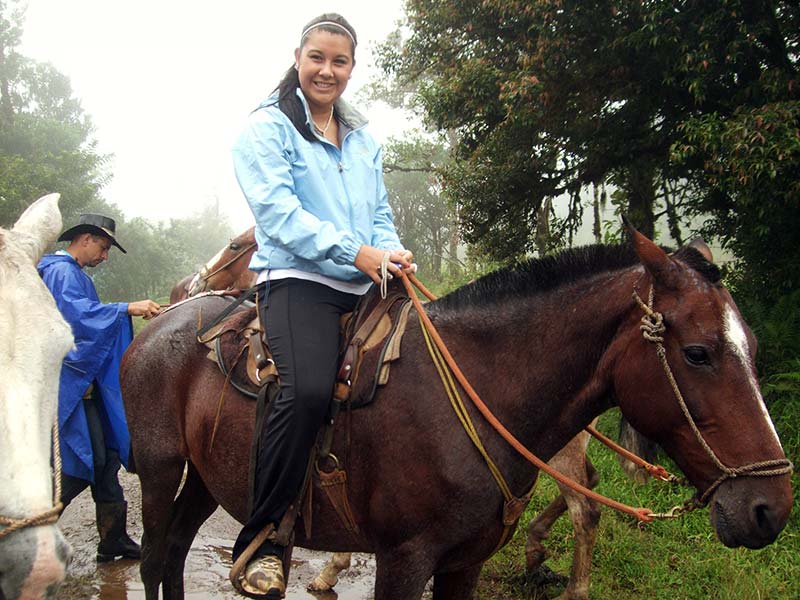
7. Volunteer for longer.
Sure you can always volunteer for a week or two, but you won’t have the same impact you would if you volunteered for a longer period of time. If you have the means and time to do so, you should definitely opt for several months in the location over a quick trip. In fact, our volunteers report that it takes about five weeks before they start feeling fully settled into their project and new community.
The more time you spend in the country, the more you can contribute to the project and the more you can immerse yourself in the culture.
8. Learn the language.
Volunteering in a country where English isn’t the first language? Then you may want to spend some time familiarizing yourself with the language before you arrive. For example, you can learn Spanish in Costa Rica before your project starts or take lessons while volunteering. Being able to communicate with the people you’re working and living with will help you make better connections and have authentic cultural experience. Plus, how cool would it be to return home being fluent in another language?
Read more: How to learn Spanish in Costa Rica once and for all
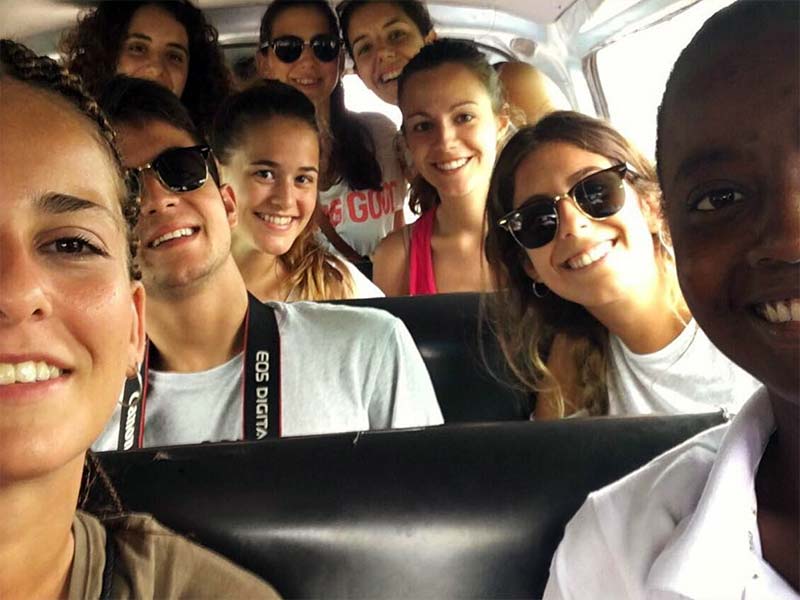
9. Focus on building relationships.
Resist the temptation to spend all your free time alone in your room reading or WhatsApping your friends back home. Instead, participate in local events, hang out with your fellow volunteers, and get to know the people you’re working with. And stay in touch even after you return home. Send a quick note to your program coordinator to find out how the project is going or add your dorm mates on Facebook so you can keep up with each other’s travels. Life is all about relationships and you never know when one might come in handy!
10. Get to know the country.
OK, so this one depends on your budget somewhat, but if you can afford to take a few weekend trips while you’re volunteering abroad, you should definitely do so. You can lower your costs and stay safe by traveling with other volunteers. But even if you don’t want to blow your budget on trips, spend some time getting to know the town where you’re volunteer dorm is based and take advantage of free or low-cost attractions. In fact, hanging out with locals is an even better way to get to know a place than flitting between the typical tourist spots.

11. Reflect on your experiences.
Carry a travel journal and spend a few minutes at the end of each day reflecting on what you did and how you’re feeling. It will help you remember your experiences much more clearly once you’re home and and also be useful when you want to describe your experiences in a college essay or job application, for example. You can also use this time to plan ahead for the next day while you’re volunteering. Is there something you want to differently tomorrow?
The takeaway
As you can see, making the most of your volunteer abroad trip involves being both positive and proactive. While your program provider can organize the details of your trip, the rest is really up to you. At the end of the day, your attitude is one of the biggest factors that will determine your success.
Want to learn more about volunteering abroad? Download our free program brochure to get started planning your own trip.